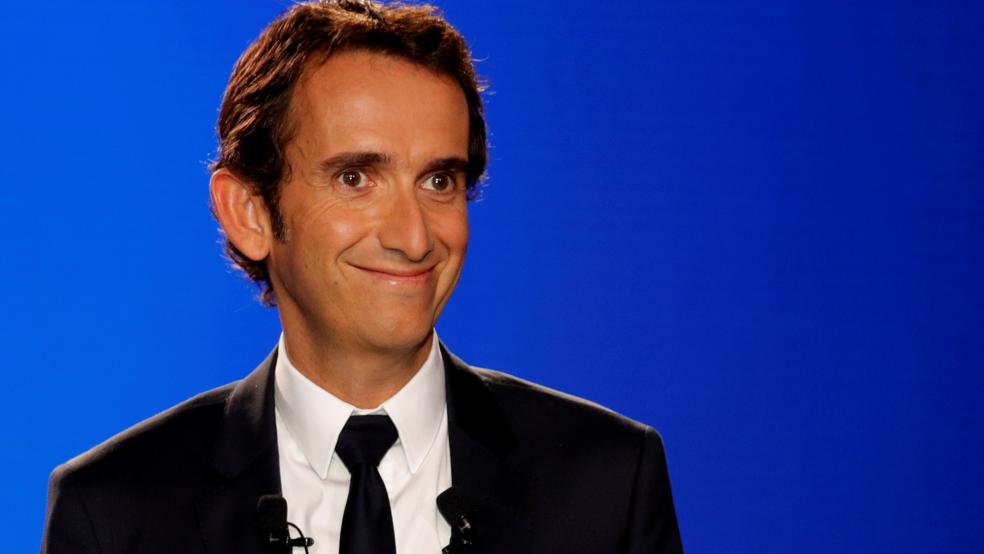PARIS (Reuters) - Carrefour is to cut jobs, boost ecommerce investment and seek a partnership in China with Tencent in the face of competition from Amazon , sending its shares higher on Tuesday.Alexandre Bompard, who took over as CEO in July, is trying to overhaul Carrefour's French hypermarket business as well as expand online retail. Amazon's purchase of Whole Foods in the United States last year has prompted speculation that the tech company could be targeting food retail in Europe next.Bompard plans to invest 2.8 billion euros ($3.4 billion) in digital commerce by 2022, six times its current investment, as Carrefour plays catch-up in online food retail."Carrefour has reached a turning point in its history. We have a huge ambition and I am well aware of the magnitude of this challenge," Bompard told a news conference. Under pressure to increase profits, Bompard also announced cost savings of 2 billion euros by 2020, including a voluntary redundancy plan for 2,400 employees at its French head office and plans to sell or close 273 underperforming stores Carrefour bought from Spanish retailer Dia in 2014.Carrefour shares rose around 6 percent, their biggest one-day gain since October 2015."Consumer trends are changing, and Carrefour is adapting accordingly," said Benoit de Broissia, analyst at Paris-based investment firm Keren Finance, which owns Carrefour shares.The group, the world's second largest retailer with more than 380,000 employees, is targeting 5 billion euros in sales in food e-commerce by 2022 - an amount that would be six times greater than at present, which would represent a 20 percent market share in France.Carrefour's online sales accounted for just 1.7 percent of its total French food sales in 2016, while more digital-savvy rival Leclerc managed 8 percent, according to analysts at brokerage Bernstein. Carrefour has struggled for years to reduce its reliance on hypermarkets, particularly in France, where it makes 47 percent of its sales.Bompard, previously CEO of electronics retailer Fnac Darty , ruled out closing any of the 247 French hypermarkets, proposing instead to reduce selling space whenever it was relevant and to transfer five hypermarkets to lease management contracts. In China, Carrefour remains loss-making amid fierce competition from local players and a buoyant online market.A partnership between rival French retailer Auchan and Alibaba has also increased the pressure on Carrefour's China business.In response, Bompard announced a potential deal with Tencent and local retailer Yonghui to take a stake in Carrefour China. Carrefour would still be the largest shareholder.UNION ACTIONBompard's plan to shed 2,400 jobs out of a total French HQ workforce of 10,500 could set the chief executive on a collision course with France's trade unions, including Force Ouvriere, which has already called for a walkout on Feb. 8.Carrefour is the largest private sector employer in France, which accounts for 44 percent of its operating profits.Bompard also said if the Dia stores did not find buyers and had to be closed there could be more redundancies."This is a plan destined to please shareholders. We remain vigilant and still fear as many as 4,500 jobs could go," Dejan Terglav, secretary general at the Force Ouvriere (FO) trade union, told Reuters. French Economy Minister Bruno Le Maire also said the government would be "very vigilant" on the staff cut plans.Other big European retailers are also cutting jobs. Britain's supermarket group Tesco said on Monday it would cut a net 800 jobs from its UK business to simplify operations and cut costs.Bompard also outlined plans to accelerate growth in supermarkets and convenience stores globally, especially in Brazil in where it wants to open 20 new Atacadao cash and carry per year.His plans followed Carrefour's warning last week that its 2017 operating profit could fall by 15 percent amid weak sales, marking its second profit warning in six months.($1 = 0.8165 euros) (Reporting by Dominique Vidalon; Additional reporting by Sudip Kar-Gupta; Writing by Richard Lough; Editing by Keith Weir and Jane Merriman)

